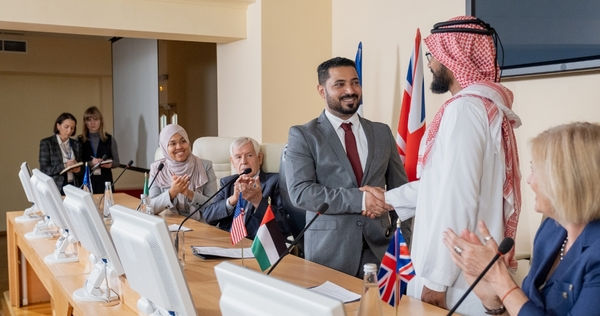Kavan Choksi Explores How Agri-Tech Is Shaping the Future of Food in the UAE
- Kavan Choksi UAE
- Nov 13, 2025
- 2 min read
The United Arab Emirates, with its arid climate and limited arable land, has long relied on imports to meet many of its food needs. However, as global supply chains face disruptions and populations grow, the nation has turned to innovation to secure its future. Kavan Choksi highlights that the UAE's adoption of Agri-Tech, spanning vertical farming, hydroponics, and controlled-environment agriculture, demonstrates how technology can transform food systems in even the most resource-constrained environments.

Vertical Farming in Urban Spaces
Vertical farming has become a cornerstone of the UAE's food security strategy. By growing crops in stacked layers within controlled indoor environments, vertical farms drastically reduce land use while maximizing output. They also consume far less water than traditional agriculture, a crucial benefit in desert conditions. Projects in Dubai and Abu Dhabi now supply supermarkets with fresh leafy greens grown just miles from urban centers. This localized production reduces reliance on imports and ensures the consistent availability of nutritious foods, even when global markets face instability.
Hydroponics and Water Efficiency
Water scarcity makes traditional farming methods unsustainable in the UAE. Hydroponics, which grows plants without soil by using nutrient-rich water solutions, has emerged as a solution. These systems use up to 90 percent less water than conventional farming, making them ideally suited for the region's climate. Farmers and entrepreneurs alike are investing in hydroponic operations, producing everything from herbs to strawberries. This innovation not only conserves resources but also showcases how agriculture can adapt to environmental realities without sacrificing productivity.
Controlled-Environment Agriculture
Controlled-Environment Agriculture (CEA) integrates advanced technologies such as climate control, LED lighting, and automation to create optimal conditions for crops year-round. The UAE's investment in CEA reflects its vision of resilience, where food production is decoupled from external factors like drought or extreme heat. By standardizing quality and output, CEA ensures reliability, making it attractive for both food security and commercial scalability. CEA's growing presence in the UAE highlights how investment in precision farming technologies can stabilize markets while promoting sustainability.
Partnerships and Global Lessons
The UAE's food tech sector has flourished through public-private partnerships, international collaborations, and government-led initiatives such as the Food Security Strategy 2051. These efforts not only address domestic needs but also position the UAE as a hub for Agri-Tech innovation. The lessons extend globally: countries with water scarcity, limited farmland, or high urban density can look to the UAE as a model for building resilient food systems in challenging environments.
Cultivating Resilience Through Innovation
The UAE's investment in Agri-Tech underscores a profound shift in how nations approach food security. Vertical farming, hydroponics, and controlled-environment agriculture are more than technological solutions because they represent a strategic vision for long-term resilience. Kavan Choksi explains that the UAE's initiatives prove that with innovation and commitment, even the harshest environments can yield reliable, sustainable food supplies. In cultivating its future, the Emirates offers a blueprint for countries worldwide navigating the complexities of food security in a changing climate.



Comments